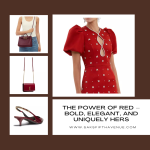Pottery Barn is a name synonymous with stylish home furnishings and decor. Established in 1949 in San Francisco, California, the brand has grown from a small retail store into a global powerhouse in the home goods industry. Known for its commitment to quality, timeless designs, and sustainable practices, Pottery Barn offers a wide range of products that cater to various tastes and lifestyles. This article delves into the brand’s history, product offerings, design philosophy, and sustainability efforts.
A Brief History
Pottery Barn was founded by Paul Secon and his brother Morris Secon, who aimed to create a retail space that showcased unique and high-quality home furnishings. The original store featured a selection of pottery and rustic furniture, inspired by the Shaker and Mission styles. As the brand grew, it expanded its offerings to include a diverse array of home goods, from bedding and textiles to outdoor furniture and kitchenware.
In the 1980s, Pottery Barn became a subsidiary of Williams-Sonoma, Inc., further solidifying its position in the market. The brand has since evolved, embracing a more contemporary aesthetic while maintaining its commitment to quality and craftsmanship.
Product Offerings
One of Pottery Barn’s standout features is its extensive product range. Whether you’re looking to furnish an entire home or simply update a single room, Pottery Barn has something for everyone. The product categories include:
- Furniture: From sofas and chairs to dining tables and beds, Pottery Barn offers a diverse selection of furniture pieces that blend comfort with style. Each piece is designed to be functional while also serving as a statement item in your home.
- Textiles: The brand boasts a wide variety of textiles, including bedding, curtains, rugs, and throw pillows. Pottery Barn places a strong emphasis on fabric quality, offering options made from organic cotton, linen, and other sustainable materials.
- Home Décor: Decorative accents are crucial to completing any space, and Pottery Barn excels in this area. Their collection includes wall art, mirrors, candles, and seasonal decorations, allowing customers to personalize their homes to reflect their tastes.
- Outdoor Furniture: Pottery Barn recognizes the importance of outdoor living and offers a range of outdoor furniture and accessories. From patio sets to garden décor, the brand helps customers create inviting outdoor spaces.
- Kitchen and Dining: With a focus on entertaining and functionality, Pottery Barn’s kitchen and dining collection includes dinnerware, glassware, and kitchen tools. These products are designed to enhance the dining experience, whether for everyday meals or special occasions.
Design Philosophy
Pottery Barn’s design philosophy is rooted in creating spaces that are both beautiful and functional. The brand emphasizes a timeless aesthetic, blending traditional craftsmanship with contemporary design elements. This approach ensures that their products remain relevant and appealing to a wide audience.
One of the hallmarks of Pottery Barn’s design is its use of natural materials. The brand incorporates wood, metal, and textiles into its furniture and décor, creating a warm and inviting atmosphere. Additionally, Pottery Barn frequently collaborates with designers and influencers to curate collections that resonate with current trends while maintaining their signature style.
Sustainability Initiatives
In an era where sustainability is increasingly important, Pottery Barn has taken significant steps to reduce its environmental impact. The brand is committed to ethical sourcing and production practices, focusing on using sustainable materials and minimizing waste.
Pottery Barn has introduced several initiatives to promote sustainability:
- Sustainable Materials: The brand prioritizes the use of sustainably sourced wood, organic fabrics, and recycled materials in its products. This commitment helps reduce the carbon footprint associated with production.
- Recycling Programs: Pottery Barn encourages customers to recycle their old furniture through various take-back programs. This initiative not only helps reduce waste but also promotes a circular economy.
- Transparency: Pottery Barn is transparent about its supply chain practices, providing customers with information about where and how products are made. This openness fosters trust and aligns with the growing consumer demand for ethical practices.
- Community Engagement: The brand actively engages in community efforts, supporting local artisans and charitable organizations. This commitment to community enrichment reflects Pottery Barn’s belief in the power of giving back.


